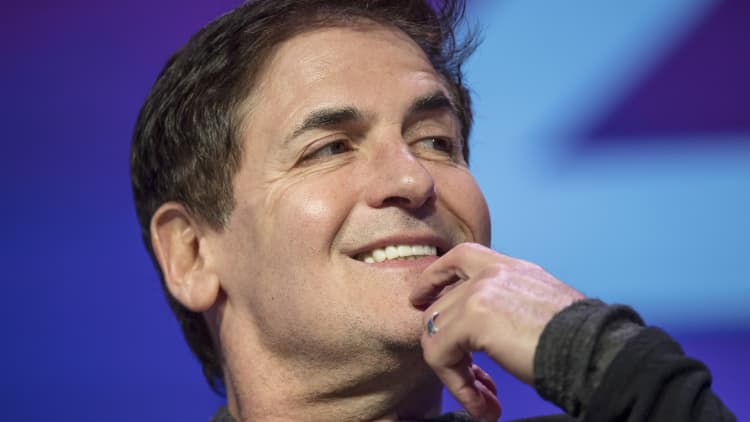Most credit cardholders in the U.S. are making an expensive mistake. More than half of the respondents in a new CreditCards.com survey, 59 percent, said they don't pay off their rewards cards in full every month. Over a third said they pay their entire statement balance less than half the time and 10 percent said they never make a complete payment.
Not making your payments on time and in full can cost you. With the average annual percentage rate (APR) now exceeding 17 percent, interest payments on balances add up fast. Indeed, the average U.S. household with revolving credit card debt pays about $900 in interest each year. That dwarfs what most people earn in rewards. If you spend $15,000 on your credit card in a year and earn a flat-rate of 1.5 percent back, you only make $225.
The fact that so many people end up having to pay more in interest than they make back in rewards and other perks is why, in 2014, billionaire Mark Cuban warned that "credit cards are the worst investment that you can make."
"The money I save on interest by not having debt is better than any return I could possibly get by investing that money in the stock market," he said.
If your credit card payment is at least 30 days overdue, meaning you're delinquent, that'll cost you even more. Your first late payment fee is at most $27 but, if you continue paying late, the penalties can get as high as $38, depending on your agreement with your credit card issuer.
In the first quarter of 2018 alone, $23 billion worth of all credit card debt in the U.S. was delinquent, according to NerdWallet's 2018 Consumer Credit Card Report.
Creditcards.com does not offer a specific reason why so many Americans aren't paying off their balances. Some simply can't afford to. But another survey found that one in five cardholders mistakenly believe carry a revolving balance is useful because it helps their credit score. This is a myth.
"One of the biggest misconceptions about FICO scores is that you have to carry a balance on your credit cards in order to build a credit history," Ethan Dornhelm, vice president of scores and predictive analytics at FICO, tells CNBC Make It. "This is completely inaccurate."
"Carrying balances from month to month and incurring interest fees absolutely doesn't help your score," he adds.

Paying off your credit card bills in full, while keeping your balances low, will help your score, though. So will paying off your other bills on time. "Everything else," says Rod Griffin, director of consumer education and awareness at Experian, "builds on those two factors."
If you're paying hundreds or even thousands per year in interest on revolving credit card debt, you may want to consider consolidating your debt onto a low-interest credit card. The move can help you become debt-free, as long as you use the card responsibly.
Some cards offer 0 percent interest for as long as 21 months, while others don't require balance transfer fees, which means you can move debt off of a card with a high APR for free.
No matter your strategy, getting out of debt helps you achieve financial freedom. Spending beyond your means and taking risks with money you don't have, by contrast, will likely set you back. Take it from Cuban, who regrets letting the debt pile up: "I should have paid off my cards every 30 days."
Like this story? Like CNBC Make It on Facebook!
Don't miss: Once you hit this credit score, going higher is a 'waste of time,' expert says




